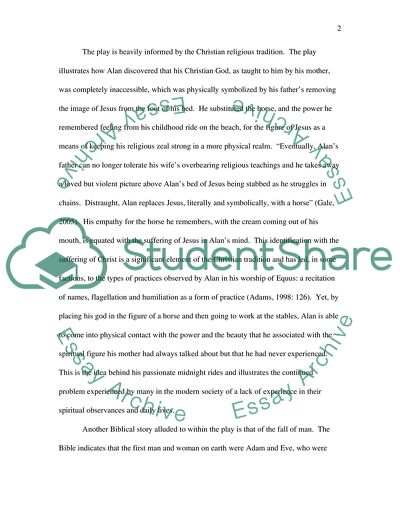Cite this document
(“Controversial Theatre: Equus Research Paper Example | Topics and Well Written Essays - 1000 words”, n.d.)
Controversial Theatre: Equus Research Paper Example | Topics and Well Written Essays - 1000 words. Retrieved from https://studentshare.org/music/1557384-controversial-theatre-equus
Controversial Theatre: Equus Research Paper Example | Topics and Well Written Essays - 1000 words. Retrieved from https://studentshare.org/music/1557384-controversial-theatre-equus
(Controversial Theatre: Equus Research Paper Example | Topics and Well Written Essays - 1000 Words)
Controversial Theatre: Equus Research Paper Example | Topics and Well Written Essays - 1000 Words. https://studentshare.org/music/1557384-controversial-theatre-equus.
Controversial Theatre: Equus Research Paper Example | Topics and Well Written Essays - 1000 Words. https://studentshare.org/music/1557384-controversial-theatre-equus.
“Controversial Theatre: Equus Research Paper Example | Topics and Well Written Essays - 1000 Words”, n.d. https://studentshare.org/music/1557384-controversial-theatre-equus.


